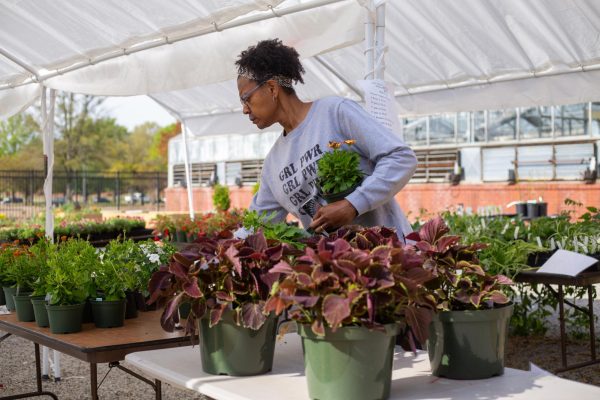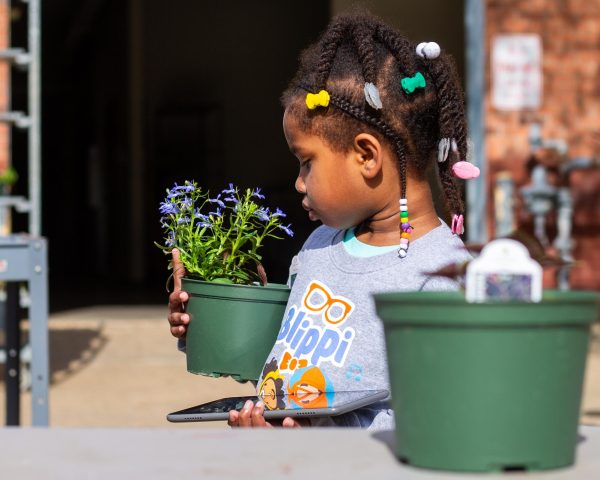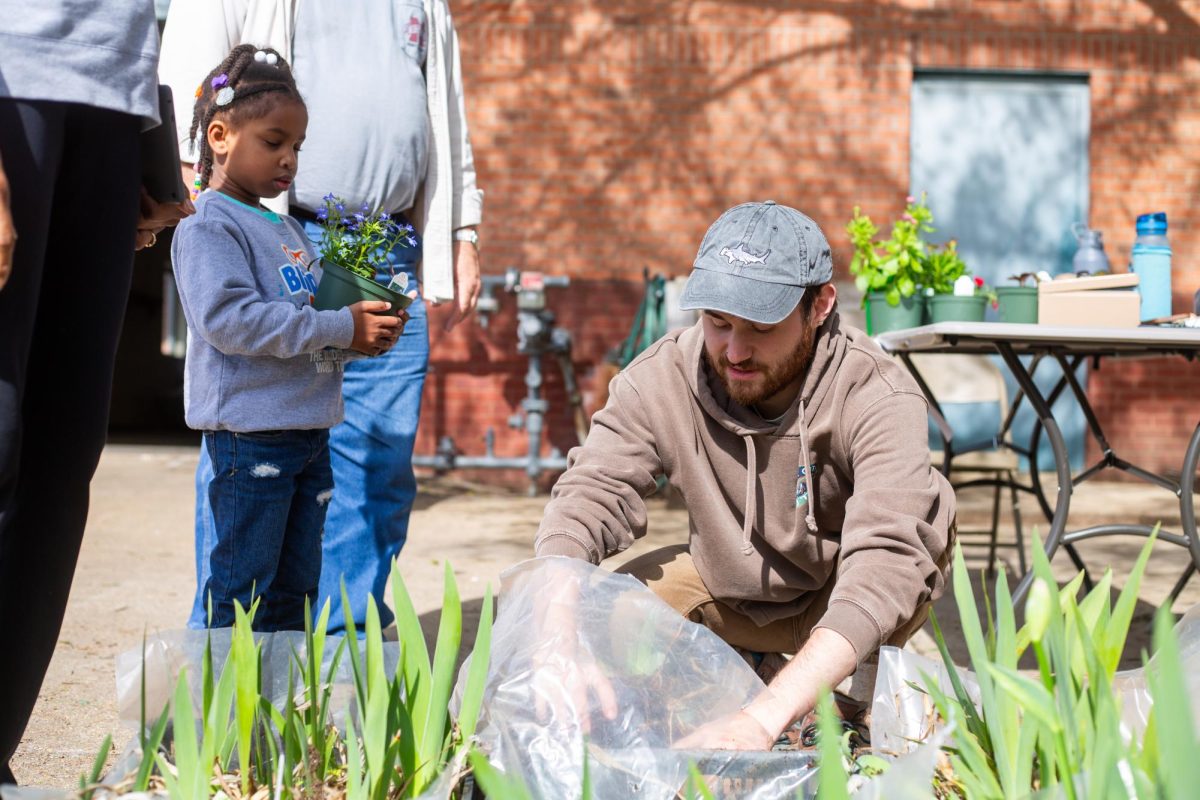The sun broke through a layer of clouds above the greenhouses at Dorman Hall early Saturday morning. A soft glow was cast onto an array of plants cultivated by the Mississippi State University Horticulture Club for their annual spring plant sale.
The sale ran from 8 a.m. to 5 p.m. Friday and 8 a.m. to 1 p.m. Saturday, following months of hard work by the club’s members. Each year, the club invests its time in ordering, planting and growing plants to sell at their two seasonal plant sales: one in the fall and one in the spring. The club is entirely self-funded, and most of the proceeds earned from the sales are used to buy supplies for the following season.
According to club greenhouse manager Wesley Rainey, customers crowded the tables for almost two hours Friday morning, purchasing vegetables, herbs, decorative flowers and houseplants. The sale also offered seedlings from the bald cypress trees in the Junction at MSU.

Rainey, a double major in horticulture and food science, nutrition and health promotion from Hattiesburg, described patrons’ enthusiasm throughout the sale.
“Yesterday was very chaotic, but I think a lot of people were really happy,” Rainey said. “I think a lot of people really liked a lot of the plants they had gotten and they’ve really been excited for the different varieties we had.”
Professor of horticulture and club advisor Richard Harkess said that since the COVID-19 pandemic, the public has become more interested in gardening. This has caused a more consistent turnout for their sales.
“COVID really centered people back to the home, and I think that has a lot to do with it,” Harkess said. “And so the more experience people have gardening, the more they continue.”
Horticulture was one of the founding programs of MSU. The club can be traced back to 1921 through issues of “The Reflector” but is possibly much older than that. Harkess said that horticulture is important because it provides everyday people with the plants and knowledge they need to develop the best garden they can.
“Horticulture matters because it is the field that’s, in agriculture, one of the most connected to the average homeowner,” Harkess said.
The club starts ordering plants for the spring sale in the fall, immediately following the fall Poinsettia sale. They order a variety of plants based on what they think customers will want the most of. Harkess said the club aims for a balance of common plants and unique ones. According to Rainey, the best-selling plants are Coleus, Begonias and all types of herbs.

Rainey stated that it takes a lot of dedication and time from every member to start and maintain the plants. They sow thousands of plants months before the plant sale and have to carefully plan when to order and sow each species of plant, depending on how fast they are expected to grow. This is done in hopes that each plant will be the perfect size when they are sold.
The club hosts planting parties throughout the semester. Rainey stated these planting parties are one of his favorite parts of the club because of the friendships he cultivates with other members.
“We always have music playing, and we’ll have food right before, and it will just be a lot of us hanging out, joking and chatting and potting up plants, just getting tons of soil under our fingers and stuff,” Rainey said.
Each of the plants in the greenhouses have to be watered at least once, sometimes twice a day, and as the plants get bigger throughout the semester, the watering process can take over an hour. Rainey is responsible for creating the watering schedule around members’ school schedules, ensuring that the plants are given the care they need to be at their best for the sale. Rainey said that the position is stressful but worthwhile.
“I’ve gotten to care for the plants that I’ve gotten to raise, and I’ve gotten to see them grow and develop,” Rainey said. “And, I got to interact with my fellow students about it, and that’s what I’ve absolutely loved about it.”
Harkess said that the primary motivation for the event is the learning that students do while preparing for the sale.
“It’s a learning experience for students of horticulture because you really learn outside of class,” Harkess said. “I teach how to grow plants in class, but until you get your hands dirty and you actually do it, it’s not real in some cases.”
Maya Olin, a freshman horticulture major from Traverse City, Michigan, said that her favorite part of preparing for the sales is learning what it takes to care for plants on a larger scale.
“You think watering plants shouldn’t take that long,” Olin said, “but when you have so many within your greenhouse or whatever area, you realize how long it takes to care for them and how much of a commitment it is.”
Harkess said that seeing the students learn and grow throughout the process means a lot to him.
“I really enjoy working with the students and I enjoy the experience of seeing them figure out what to order and how much to order, and really going from being pretty naive as to what it takes, that by the time the greenhouse manager sells the plants, they’re pretty aware,” Harkess said.
The sale ended at 1:00 p.m. on Saturday, and the small amount of plants leftover were given to the Oktibbeha County Master Gardeners to be sold at a farmers market. The proceeds will help fund a horticulture scholarship at MSU.


















